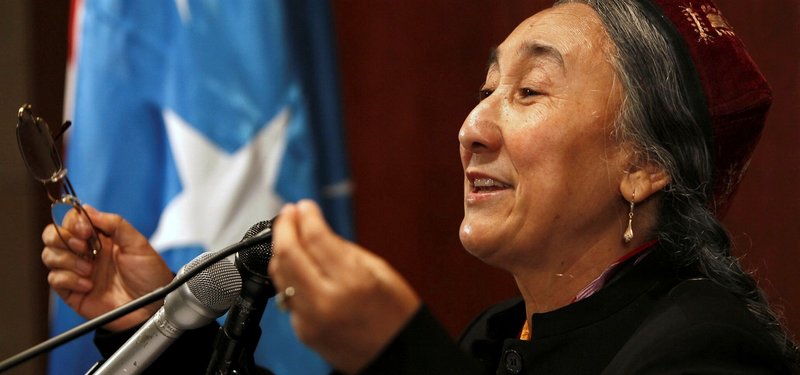
Amnesty says China detains dozens of relatives of exiled Uighur leader
Rights group Amnesty International stated that dozens of relatives -including her sisters, brothers, sons, grandchildren and extended relatives- of Rebiya Kadeer, an exiled ethnic Uighur leader, have been held by authorities in China's far western region of Xinjiang.
- World
- Reuters
- Published Date: 12:00 | 14 November 2017
- Modified Date: 04:47 | 14 November 2017
Authorities in China's far western region of Xinjiang have in recent months detained up to 30 relatives of an exiled ethnic Uighur leader, Rebiya Kadeer, rights group Amnesty International said on Tuesday.
It was not possible to independently verify the report.
Xinjiang, where hundreds have died in recent years in violence between majority Han Chinese and ethnic Uighurs who call Xinjiang home, is under tight security and independent reporting there is difficult.
Uighurs are a mostly Muslim people who speak a Turkic language.
A Xinjiang government news department official declined to comment, saying she was unaware of the report. China's foreign ministry did not immediately respond to a request for comment.
Kadeer is a former political prisoner in China accused of leaking state secrets in 1999. She was later allowed to leave on medical grounds and lives in the United States. She is president of the World Uyghur Congress.
Amnesty said that among those detained were Kadeer's sisters, brothers, sons, grandchildren and extended relatives.
Some of her relatives have been detained or jailed previously in Xinjiang.
The rights group said in an emailed statement that it was unclear when they were taken away, and that they were "presumed" to be held at a so-called education centre and risked torture.
"These facilities are known to arbitrarily detain Uighurs and other Muslim minorities for 6-12 months or more," it said.
"Forced to study Chinese laws and policies, many of those detained are targeted because they may have been found praying, owning religious books, have travelled abroad, or have family members living abroad," it said.
The Chinese government routinely denies accusations of rights abuses in Xinjiang, though it has admitted a problem with torture of detainees and has pledged to stop mistreatment of prisoners.
Xinjiang, on the borders of Central Asia, Afghanistan and Pakistan, is one of China's most sensitive domestic issues and where China says it faces its own war on radical Islam and militancy.
Rights groups and Uighur exiles say the unrest is more a product of Uighur frustration at Chinese controls on their culture and religion. China denies any repression.

